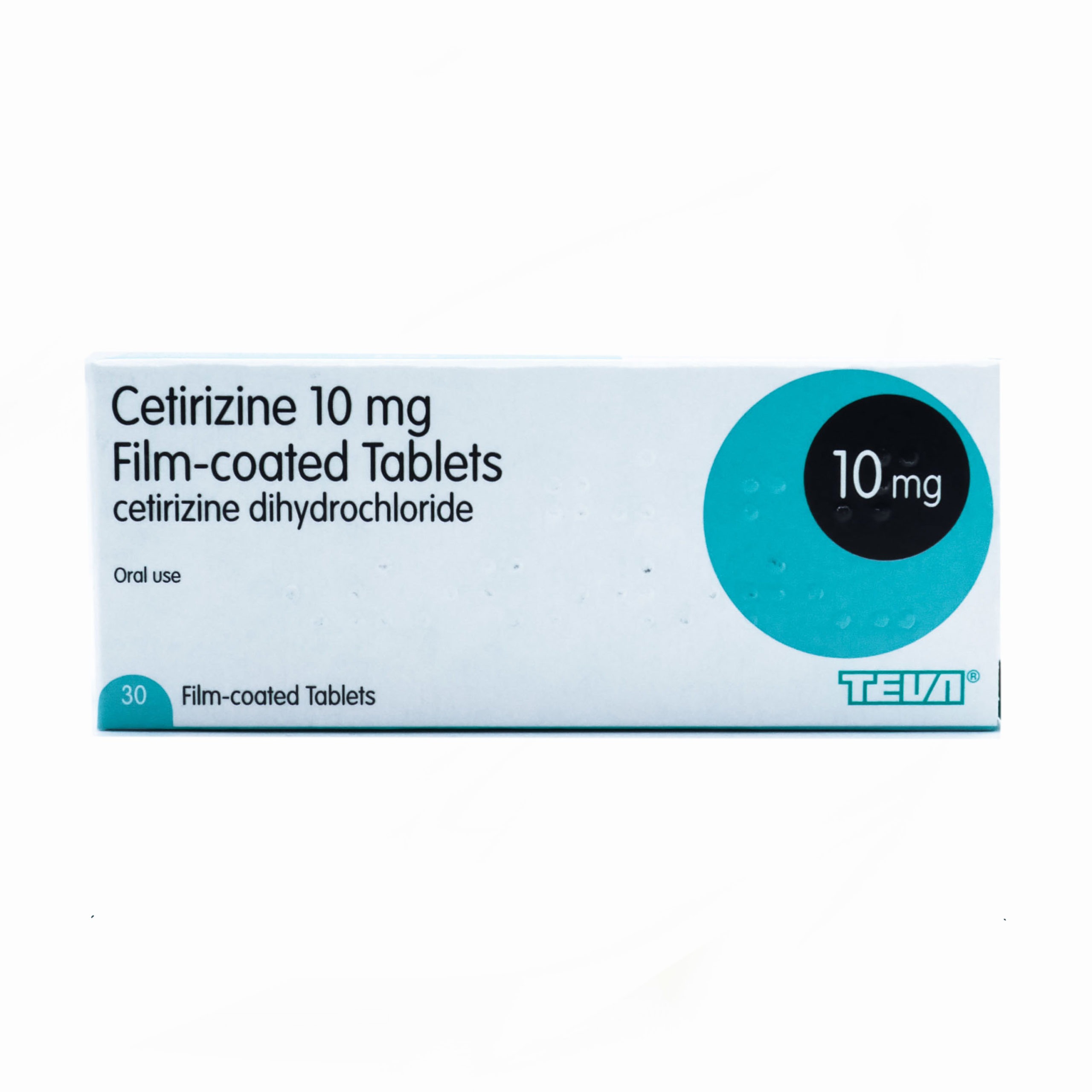Cetirizine

Fastest delivery:
Order by 12:00pm
-

GMC and GPhC-regulated clinicians
Expert care from GMC and GPhC-regulated clinicians. Trust in professional medical advice and treatments tailored to your needs.
-

100% UK-based pharmacy
Our team of doctors and prescribers, and our support staff, are all UK-based.
-

Free support and advice
We're on hand to offer free support and advice by email and telephone (Mon - Fri 08:30 - 17:00).
-

GP-Led Prescribing
Expert care from GP-led clinicians. Receive professional, trusted medical advice and treatments tailored to your needs.
Description
What is Cetirizine?
Cetirizine is an antihistamine medication approved by the Food and Drug Administration (FDA), for the treatment of annual or seasonal allergies and inflammation of nasal membranes otherwise known as vasomotor rhinitis. It is a non-drowsy antihistamine commonly used to relieve symptoms of allergies, such as hay fever. Available in tablet and capsule forms, it is suitable for adults and children over the age of 2.
It can also be used to provide relief from conditions such as hives, cold, angioedema, food allergies, among others. It is important to note that Cetirizine only offers temporary relief to the symptoms, and should not be used as a substitute for the prescribed medication.
How Does Cetirizine Work?
Cetirizine works by reducing or blocking the production of histamines. Notably, when the body is exposed to certain triggers such as insect bites, dust, pet dander, food substances, or scents, it naturally produces chemicals known as histamines to help protect the body. However, these chemicals can make your eyes tear up, cause a runny nose or itchy skin due to rashes.
It treats watery or itchy eyes, sneezing, a runny nose, and rashes on the skin.
Warnings
- A person with kidney disease should be given a go-ahead by their doctor before using this medication.
- Seek authorization from your doctor if you are using sedatives or tranquillizers before using Cetirizine.
- Cetirizine should not be used for longer than the recommended period or in large or small doses.
- Cetirizine should not be used by an individual who is allergic to hydroxyzine ingredients.
- Use with caution if you have epilepsy, or are pregnant or breastfeeding.
- Always follow the dosing instructions and consult your doctor if symptoms persist.
Directions
Follow the directions indicated on the package or as specified by your doctor or pharmacist.
- Cetirizine can be taken with or without food, however, one should take it around the same time daily.
- You should not use Cetirizine to treat blistered or bruised hives.
- Avoid alcohol intake when using Cetirizine
- Observe caution when driving or handling heavy machinery.
- In case your symptoms do not improve, call your doctor for a thorough examination.
Ingredients
Hydrochloride, starch maize, macrogol lactose, magnesium, povidone, polymethacrylate basic, and stearate.
Side Effects
Antihistamine treatments such as Cetirizine constitute of side effects such as:
- Nausea and vomiting
- Dry mouth
- Sore throat
- Headache
- Blurred vision caused by dizziness
- Abdominal pains among others
Cetirizine is an over-the-counter medication that can be purchased even without a prescription. However, if your symptoms do not seem to improve or you suffer extreme side effects, stop the medication immediately and seek emergency treatment.
FAQs
1. Can I take cetirizine daily?
Yes, cetirizine can be taken daily, especially during allergy seasons or as needed for chronic allergies.
2. Does cetirizine cause drowsiness?
Cetirizine is classified as a non-drowsy antihistamine, but it may cause drowsiness in some individuals.
3. Can children take cetirizine?
Yes, it is suitable for children over 2 years, with dosage adjusted based on age.
4. Can I take cetirizine with other medicines?
Generally, yes, but you should consult your doctor or pharmacist, especially if taking other antihistamines or allergy treatments.
5. Can pregnant women take cetirizine?
Consult a doctor if you are pregnant or breastfeeding before taking cetirizine.


